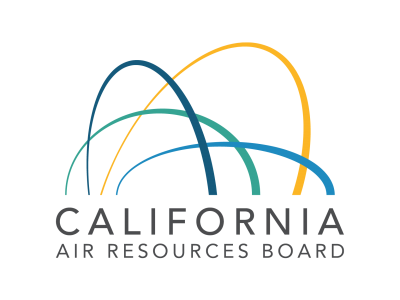Environmental Regulations and Trucking
The State of California is known for leading the nation in regulations. So it is no surprise that California’s powerful Air Resources Board (CARB) has adopted the Advanced Clean Fleet rule after several years of proposals and hearings. The rule intends to eventually end using internal combustion engines (ICE) on California’s roads. This comes on the heels of regulations passed by CARB that require all vehicles sold in the state to be electric, hydrogen-fueled, or at minimum, plug-in hybrid by 2035. Southern California is home to the nation’s busiest ports, Los Angeles and Long Beach, which have strict environmental rules in place already. Recently, the Biden Administration released a new proposal on emission standards for all trucks and automobiles on a federal level, considered the toughest ever.

Protecting the environment is a noble cause; it’s also a complicated goal from an economic standpoint because of the financial effect on business. Furthermore, it is an issue that has been going back and forth for decades. Here, we examine both sides. One thing is certain, the move toward lower emissions of greenhouse gasses is plowing ahead. What is not fully clear is how fast it will go and who will lead the charge; the government or the private sector.
If it isn’t already, it is expected that Tesla will be the best-selling automobile in the world in 2023. Tesla is 100% electric, and what makes it stand out, besides its product’s quality, is the vision of the current CEO, Elon Musk.
Tesla was making electric vehicles before there was an infrastructure for charging and before there was popular demand. In fact, previous attempts by more experienced automakers were not successful. General Motors released the EV1 concept car in 1996, and its whole history is mired in controversy and conspiracy theories. But the reality is that the era of very cheap gas prices was starting around then, and there simply was no market or appetite for EVs.
Recently, while Tesla was taking off on its own, two events catapulted the automaker forward; Covid and Russia/Ukraine. In response to Covid and the lockdowns it brought, the government stimulated the economy with $trillions causing inflationary pressures to begin and prices on everything to rise. The Russia/Ukraine conflict and the resulting sanctions on Russia, one of the world’s largest crude oil producers, also caused gas price increases. Tesla is a prime example of the market leading on the issue, having invested heavily in a market that didn’t exist yet, betting on infrastructure that hadn’t been planned yet, getting built, and being in the right place at the right time.

The rise in gas prices may have helped bring more people around to EVs, but environmental changes have been on the minds of regulators for years. For a while, the science of climate change was questioned; now, few people dispute that climate change is real. In 2022, the US was hit by Hurricanes Ian and Nicole, the Colorado, and Mississippi Rivers experienced record low water levels, Europe had record heat waves, the Rhine River also had dangerously low water levels, and there were other major climate events around the world. This past winter, the US was hit with a Polar Vortex, and in California, flooding was caused by a rare weather event known as an “atmospheric river.”
Where people differ is the pace of implementing a solution. People of a certain age can recall the resistance to seat belts, 55 MPH speed limits, and airbags. At first, the objection to those things was portrayed as personal liberty issues. However, when the data was disseminated, and the benefits were incontrovertible, the objections came from the automakers and the gas companies who stood to lose money or have higher costs. Eventually, they became a reality.

The biggest objection to the CARB regulations in California and overall automotive emission standards comes from trucking companies that are either small companies or owner-operators. Unfortunately, these regulations create a considerable burden, forcing owners to make a substantial investment or close their operations. With higher prices, lower volume of sales, and thinning profit margins, these SMB truckers simply cannot afford the mandatory changeover. As of January 1, 2023, all drayage trucks over 26,000 lbs. vehicular gross weight must have engines from 2010 or later. And if you enter the facilities of the Port of Long Beach, your truck must be a 2014 model or newer. These regulations have obliged all operators in California to upgrade their fleets to comply.
The balance between necessity and economic feasibility has not yet been met in California or nationally. There is a strong argument that all of these regulations favor big trucking companies and harm the smaller ones. The counterargument is that the regulations are needed to provide regulatory certainty. Still, it’s not so simple. The issue of the environment needs a global solution. While the US is responsible for 14% of the world’s carbon emissions, China is responsible for 30%, more than the US and Europe combined. Russia accounts for 7%. With 50% of carbon emissions generated by three world powers with conflicting interests, finding a global solution is farther from reach than ever. It doesn’t mean the US should give up, stop or not do its part. It simply means that a global solution is beyond the horizon. The trucking industry, with some merit, feels like they are being scapegoated.
Meanwhile, with less regulatory aggressiveness put on them, ocean freight and air carriers are plowing ahead with going green. Still, the players in that arena are usually large, often public companies with multiple options to access cash for infrastructure investment. Ultimately, even ships and cargo planes need their containers unloaded and delivered somewhere. The need for trucking is not going away anytime soon. The question is, will there be enough trucks around to meet environmental regulations and deliver everything efficiently and cost-effectively?

